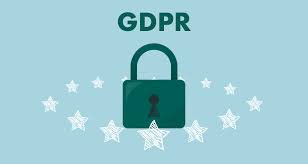Introduction
The General Data Protection Regulation (GDPR) has become a hot topic in recent years, impacting businesses worldwide. Designed to protect the privacy and personal data of individuals within the European Union (EU), the GDPR has far-reaching consequences for organizations, regardless of their location. This blog post aims to shed light on the key aspects of GDPR and how it can affect your business, helping you navigate the complex landscape of data protection.
Understanding the GDPR
The GDPR is a regulation passed by the EU in 2016, which came into effect on May 25, 2018. Its primary goal is to provide individuals with greater control over their personal data and to harmonize data protection laws across EU member states. The regulation encompasses a wide range of aspects, including the definition of personal data, consent requirements, data breach notification, and the right to erasure.
Scope and Applicability
The GDPR applies to all organizations that process personal data of individuals residing in the EU, regardless of the company's location. This means that if your business offers goods or services to EU residents or monitors their behavior, you are subject to the GDPR's requirements. It is crucial to note that the regulation covers both data controllers (those who determine the purposes and means of data processing) and data processors (entities that process data on behalf of controllers).
Key Provisions of the GDPR
a) Consent: The GDPR sets a higher standard for obtaining valid consent. It requires organizations to obtain explicit, freely given, and informed consent from individuals before collecting or processing their personal data.
b) Data Subject Rights: The regulation grants individuals several rights, including the right to access their personal data, the right to rectify inaccurate information, and the right to be forgotten (i.e., erasure). Businesses must be prepared to handle such requests within strict timelines.
c) Data Protection Officer (DPO): Certain organizations may be required to appoint a DPO to oversee data protection activities and act as a point of contact for data subjects and supervisory authorities.
d) Data Breach Notification: The GDPR mandates organizations to report data breaches to supervisory authorities within 72 hours of becoming aware of them. Additionally, in certain cases, affected individuals must be notified without undue delay.
e) Privacy by Design and Default: Organizations must incorporate data protection measures from the earliest stages of product or service development, ensuring that privacy is embedded by default.
Penalties and Enforcement
Non-compliance with the GDPR can lead to severe penalties. The regulation empowers supervisory authorities to impose fines of up to 4% of a company's global annual turnover or €20 million, whichever is higher. The exact penalties depend on various factors, including the nature, gravity, and duration of the infringement.
Implications for Your Business
Complying with the GDPR presents both challenges and opportunities for businesses. While it may require additional resources, efforts, and investments to achieve compliance, there are several benefits. Adhering to the GDPR can enhance customer trust, strengthen your brand reputation, and mitigate the risk of reputational damage resulting from data breaches.
To ensure compliance, businesses should conduct thorough data audits, revise their data protection policies, implement appropriate technical and organizational measures, and train employees on data protection principles. It is also crucial to review and update contracts with third-party vendors to ensure they comply with GDPR requirements.
Conclusion
The GDPR represents a significant shift in data protection and privacy regulations, affecting businesses globally. Regardless of your organization's location, if you handle personal data of individuals in the EU, compliance with the GDPR is essential. By understanding the key provisions, adopting privacy-conscious practices, and embracing data protection as a fundamental principle, businesses can navigate the GDPR landscape successfully, enhance customer trust, and safeguard personal data in an increasingly digital world.


No comments yet